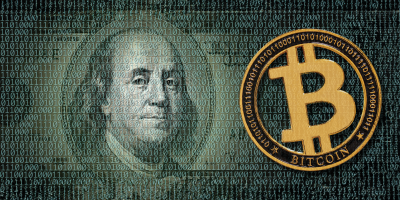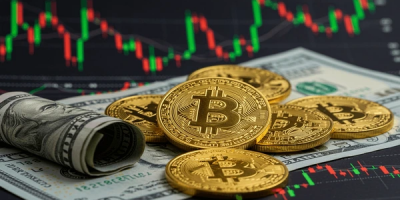The Psychology of Bitcoin and Why It Matters
The Psychology of Bitcoin is one of the most fascinating aspects of modern finance. It’s not just about technology or economics—it’s about how human beings think, trust, and assign value. I still remember the first time I heard about Bitcoin. A “digital currency” that existed only online? It sounded wild—almost like a sci-fi concept. Yet, as I dug deeper, I realized it wasn’t just money made of code—it was an entirely new way of understanding trust, freedom, and value itself. Fast forward to today, and Bitcoin has transformed from a mysterious experiment into a global movement. Millions of people around the world now see it as a symbol of independence and a store of wealth. But that raises a powerful question: why do people trust something they can’t see, touch, or spend in a physical store? Unlike traditional money, which depends on governments and banks, Bitcoin relies on transparency, decentralization, and collective belief. Its power lies as much in psychology as in mathematics. Let’s explore what makes people trust digital money—and why that trust keeps growing year after year.
Trust in the Decentralized: A Rebellion Against the System
For generations, we’ve been told to trust central authorities—banks, governments, and corporations—to handle our money. That trust was shaken in 2008 when the global financial system nearly collapsed. The crisis exposed how fragile traditional finance could be and how little control ordinary people actually had. Out of that chaos came Bitcoin. Introduced in 2009 by the mysterious Satoshi Nakamoto, it offered an alternative: a peer-to-peer system with no banks or intermediaries, powered by blockchain technology. Bitcoin didn’t ask for blind faith—it invited anyone to verify. Every transaction is public, every rule is encoded, and no single person controls it. That’s where the psychology of Bitcoin truly begins. It speaks to our deep desire for autonomy and transparency. People trust it precisely because it doesn’t rely on human promises—it relies on math, logic, and proof. It’s a rebellion against the idea that we need someone else to manage our money.
The Scarcity Principle: Why Limited Supply Creates Value
Scarcity has always been one of the most powerful psychological drivers of value. Humans naturally desire what’s rare. Gold is precious because there’s not much of it. Art is valuable because it’s one-of-a-kind. Bitcoin was designed with that same principle in mind. There will only ever be 21 million bitcoins in existence. No government, no central bank, and not even Satoshi Nakamoto can change that rule. This fixed supply creates an unshakable sense of scarcity—and with scarcity comes trust. People know that their Bitcoin can’t be inflated or printed into oblivion. That’s a sharp contrast to fiat currencies, which lose value as more money enters circulation. Psychologically, this taps into our fear of loss and our attraction to stability. Bitcoin feels safe not because it’s risk-free, but because it’s fair. Everyone plays by the same mathematical rules, and no one can cheat the system.
The Power of Community and Collective Belief
If money is ultimately a shared story, then Bitcoin is one of the greatest stories ever told. The dollar, the euro, or the yen—all have value only because we collectively agree they do. Bitcoin takes that same shared belief and removes the middlemen. It’s global, borderless, and open to anyone. The community surrounding Bitcoin is one of its most important psychological pillars. Early adopters didn’t just buy a coin—they bought into a mission: financial freedom, decentralization, and empowerment. This collective belief fuels a powerful feedback loop. The more people who believe in Bitcoin, the stronger its network becomes—and the more its value and credibility grow. This is social proof in action, one of the strongest forces in human behavior. Belonging to something revolutionary makes people more committed, vocal, and confident. It’s not just about owning Bitcoin—it’s about being part of the future.
The Fear of Missing Out: Emotion in the Market
Let’s be real—emotion drives markets as much as math. And few emotions are as strong as FOMO, the fear of missing out. Bitcoin’s price history is full of dramatic rises that captured headlines around the world. Every surge brings new excitement, and every dip brings doubt. Yet, the rollercoaster itself keeps people engaged. When prices rise, people rush in. When prices fall, believers “HODL” and double down. That emotional push-and-pull keeps Bitcoin in the spotlight. Psychologically, FOMO isn’t just greed—it’s the fear of being left behind in a moment of transformation. Bitcoin symbolizes progress, innovation, and the future of money. People want to be part of that story before it becomes the norm. That’s why, even after major downturns, the community doesn’t vanish—it grows stronger. Belief, not just price, sustains the movement.
The Appeal of Control and Financial Freedom
One of the most appealing psychological aspects of Bitcoin is the sense of control it provides. In traditional banking, your access to money can depend on rules, fees, or even political conditions. But with Bitcoin, you are the bank. You hold your private keys, you manage your assets, and no institution can freeze or limit your funds. That independence is deeply empowering. Humans have an inherent desire for autonomy—especially when it comes to something as personal as money. Bitcoin gives people back that control. It’s particularly appealing in places where inflation, censorship, or unstable currencies make traditional banking unreliable. Bitcoin becomes not just an investment, but a tool for survival. This emotional connection—knowing you’re in charge of your own wealth—creates powerful, long-term trust.
Transparency and the Power of Verification
Traditional finance relies on hidden systems. We deposit money and hope that it’s handled honestly. Bitcoin changes that psychology completely. It operates on a blockchain—a public, immutable ledger that anyone can verify. Every transaction is transparent, recorded, and permanent. There’s no room for manipulation behind closed doors. This is what makes Bitcoin a “trustless” system—not because it lacks trust, but because it doesn’t require it. Instead of “trust and hope,” Bitcoin’s philosophy is “verify and know.” That shift in mindset gives people confidence. They don’t need to depend on a third party—they can see the truth for themselves. In a world filled with financial scandals, this kind of transparency is refreshing and psychologically liberating.
Bitcoin as a Belief System: The Power of Narrative
Bitcoin isn’t just a technology or a currency—it’s a story. A story about freedom, fairness, and the future of money. For many, owning Bitcoin is like being part of a peaceful revolution. It represents resistance to corruption, inflation, and centralization. Psychologically, this gives Bitcoin meaning beyond profit. It satisfies our need for purpose and belonging. People don’t just invest in Bitcoin—they identify with it. They become advocates, educators, and evangelists. This emotional investment makes Bitcoin resilient. Even when prices crash, belief remains. The narrative of empowerment keeps people holding, building, and spreading the word. That’s why Bitcoin has survived when so many other projects have disappeared—it’s driven by purpose, not hype.
Risk, Reward, and the Psychology of Adventure
Of course, Bitcoin isn’t for everyone. Its volatility can be nerve-wracking. But for many, that’s part of its appeal. Risk and reward are two sides of the same psychological coin. The uncertainty of Bitcoin excites people who crave innovation and challenge. It’s the same mindset that drives entrepreneurs, explorers, and pioneers. There’s a thrill in being early to something big, in taking a calculated risk that could change your future. Bitcoin taps into that adventurous spirit. It invites people to take control of their financial destiny, even if it means facing uncertainty along the way. That sense of possibility is addictive—and it’s a big part of why Bitcoin continues to attract new believers.
Conclusion: The Future of Trust in Digital Money
When I think about Bitcoin today, I see more than just a cryptocurrency. I see a mirror reflecting our collective psychology. We trust Bitcoin because it aligns with our deepest human desires: fairness, transparency, autonomy, and belonging. We’re drawn to its scarcity because it feels stable. We’re inspired by its mission because it feels just. And we embrace its volatility because it feels alive. The Psychology of Bitcoin isn’t about algorithms—it’s about people. It’s about how technology and emotion intersect to redefine what we value and why. As the world becomes increasingly digital, Bitcoin stands as proof that trust doesn’t have to come from governments or corporations. It can come from math, community, and shared belief. The more we understand this psychology, the better prepared we are for the future of money—a future built not on promises, but on proof.



